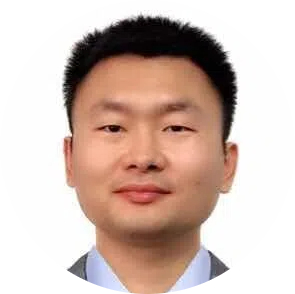Special Session 11 会议特别专题 11
Multichannel Radar and Sonar Target Detection in Complex Environments
Description: The rapid advancement of radar
and sonar technology is facing increasingly complex
combat scenarios, and modern radar and sonar systems
face significant challenges in target detection
under strong reverberation/clutter, dense
interference, and sophisticated environments.
Multichannel technology, leveraging
multi-dimensional information fusion in spatial,
temporal, and frequency domains, has substantially
enhanced target detection capabilities. However, in
practical applications, radar and sonar systems
often encounter challenges such as strong
clutter/reverberation and intentional interference,
which severely degrade detection performance.
Improving the detection capabilities of
multi-channel systems in complex environments has
thus become a critical issue in the field of radar
and acoustic signal processing.
To foster academic exchange in array signal
processing, target detection, reverberation
suppression and anti-clutter/interference
technologies, and to advance the application of
multi-channel systems in complex environments, this
special section aims to bring together experts,
scholars, research institutions, and industry
professionals worldwide. The event will focus on the
latest research achievements, technical challenges,
and future trends in multichannel target detection
under complex environments. Discussions will center
on theoretical innovations, algorithm design,
hardware implementation, and practical applications,
providing a high-level platform for researchers in
related fields.
Session organizers
Prof. Hao Chengpeng, Institute of Acoustics, Chinese
Academy of Sciences, China
Assoc. Prof. Liu Weijian, Wuhan Electronic
Information Institute, China
Assoc. Prof. Wu Min, Institute of Acoustics, Chinese
Academy of Sciences, China
Assoc. Prof. Hua Xiaoqiang, National University of
Defense Technology, China
The topics of interest include, but are not limited to:
▪ Multichannel target
detection in non-homogeneous environments
▪ Multichannel target detection with limited
training samples
▪ Multichannel target detection under interference
conditions
▪ Space-based early warning multichannel target
detection
▪ Deep learning-based multichannel target detection
▪ Statistical performance analysis of multichannel
adaptive detectors
▪ Experimental validation of multichannel detection
▪ Other related cutting-edge technologies
Submission method
Submit your Full Paper (no less than 5 pages with two colums) or
your paper abstract-without publication (200-400
words) via
Online Submission System, then choose Special
Session 11 (Multichannel Radar and Sonar Target
Detection in Complex Environments)
Template Download
Introduction of
Session organizers
 Prof. Hao Chengpeng,
Institute of Acoustics, Chinese Academy of Sciences,
China
Prof. Hao Chengpeng,
Institute of Acoustics, Chinese Academy of Sciences,
China
Hao Chengpeng (Senior Member, IEEE) is a full
professor at the Institute of Acoustics, Chinese
Academy of Sciences (CAS). He has been engaged in
research on underwater acoustic and radar signal
processing, array signal processing, as well as the
design of Unmanned Underwater Vehicle (UUV). He has
published more than 180 SCI/EI papers, held 50
authorized national invention patents. He has also
published 4 monographs. He has been responsible for
more than 20 national and provincial research
projects, including leading 4 projects funded by the
National Natural Science Foundation of China (NSFC).
He has received the Zhu Li Yuehua Outstanding
Teacher Award, CAS Outstanding Scientific and
Technological Achievement Award, the Wu Wenjun
Artificial Intelligence Science and Technology
Progress Award, and several international paper
awards. He currently serves as an associate editor
for IEEE Signal Processing Letters and Signal Image
and Video Processing (Springer).
 Assoc. Prof. Liu Weijian,
Wuhan Electronic Information Institute, China
Assoc. Prof. Liu Weijian,
Wuhan Electronic Information Institute, China
Liu Weijian is an associate professor at the Wuhan
Electronic Information Institute. He has been
engaged in research related to radar target
detection for a long time. He has published more
than 100 SCI papers as the first author and
corresponding author. Among them, there are 2 ESI
hot papers and 2 ESI highly cited papers. He has
also published 2 monographs. He has been in charge
of 3 projects funded by the National Natural Science
Foundation of China, as well as several provincial
and ministerial-level projects. He serves as an
editorial board member or associate editor of
several journals such as IEEE Trans. Aerosp.
Electron. Syst., Signal Process., and Digit. Signal
Process.. He has won 4 provincial-ministerial-level
science and technology awards and has been listed in
the top 2% of the world's top scientists for five
consecutive years.
 Assoc. Prof. Wu Min,
Institute of Acoustics, Chinese Academy of Sciences, China
Assoc. Prof. Wu Min,
Institute of Acoustics, Chinese Academy of Sciences, China
Wu Min (Senior Member, IEEE). Min Wu received her
Ph.D. degree from the State Key Laboratory of Radar
Signal Processing from Xidian University in 2016.
From 2014 to 2015, she held a visiting position with
the Electrical Computer Engineering Department,
University of Delaware, Delaware, USA. She is now an
associate professor at Institute of Acoustics,
Chinese Academy of Sciences (CAS), Beijing, China.
Her research interests include sparse array signal
processing, parameter estimation and
super-resolution imaging. She has published more
than 30 SCI/EI papers, including those in highly
regarded journals such as the IEEE TIM, IEEE TAES,
SPL, etc. She has been granted 10 invention patents.
She has been responsible for 7 national and
provincial research projects, such as the National
Natural Science Foundation of China (NSFC) and the
Naval Special Project.
 Assoc. Prof. Hua Xiaoqiang,
National University of Defense Technology, China
Assoc. Prof. Hua Xiaoqiang,
National University of Defense Technology, China
Hua Xiaoqiang received the Ph.D. degrees in
information and communication engineering from the
National University of Defense Technology, Changsha,
China, in 2018. He is currently an Associate
Professor with the National University of Defense
Technology. His research interests include
information geometry, signal detection, and
intelligent information processing. He has published
more than 30 peer-reviewed papers, including those
in highly regarded journals such as the IEEE TSP,
TCOM, TGRS, etc. He has served as a reviewer for
over 10 journals.
